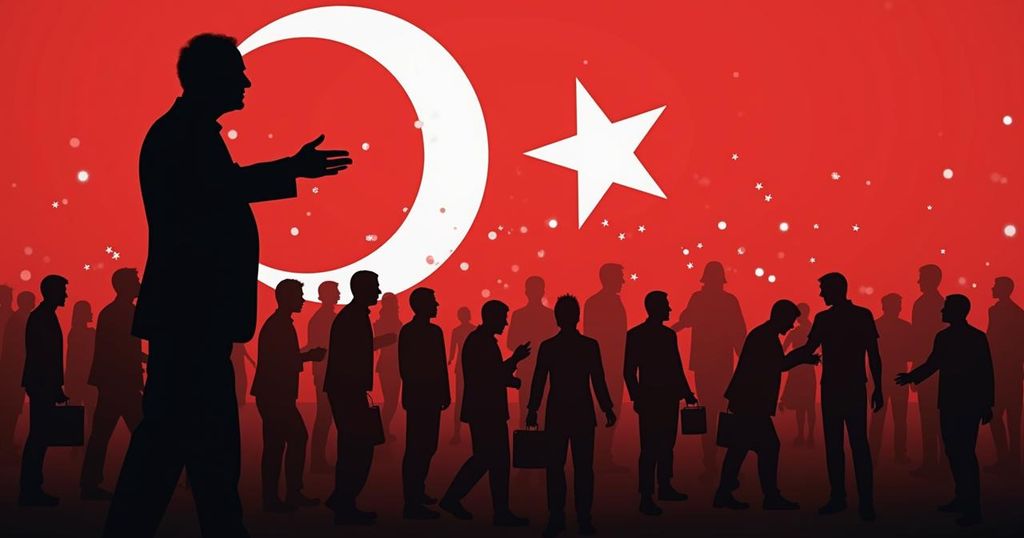Kais Saied is projected to win Tunisia’s presidential election with 89.2% of the vote amid low voter turnout of less than 30%. His first term has been marked by significant economic challenges and the consolidation of political power. The opposition has largely boycotted the elections, claiming they are illegitimate, as disillusionment grows among the electorate.
In the recent presidential election held in Tunisia, incumbent President Kais Saied is projected to secure a substantial victory, garnering approximately 89.2 percent of the vote, based on exit polls reported by state television. This anticipated victory would solidify Saied’s grip on power, which he has bolstered significantly since the consolidation of authority in 2021. However, the election witnessed a significant lack of voter engagement, with turnout recorded at less than 30 percent, marking a notable decline from the 49 percent voter participation observed during the first round of the 2019 elections. President Saied faced two candidates in this election: imprisoned businessman Ayachi Zammel and leftist politician Zouhair Maghzaoui, a figure previously aligned with Saied. The president, a former law professor, capitalized on widespread discontent with the political system established after the Arab Spring, which has failed to meet the expectations of many Tunisians. The opposition largely boycotted the electoral process, criticizing the elections as illegitimate. The official announcement of results is anticipated later on Monday evening, while early reports indicated that 2.7 million voters had participated, translating to a turnout of approximately 27.7 percent of the registered electorate. This disappointing turnout reflects the growing disillusionment among citizens regarding their political landscape. Since his election in 2019, President Saied has implemented drastic measures, including dissolving parliament in 2021 and ruling by decree, actions that opponents categorize as a coup d’état. Saied maintains that he will not cede authority to what he refers to as ‘non-patriots.’ In asserting his commitment to a fair electoral process, he has dismissed claims of imposing restrictions on rival candidates, denoting such allegations as unfounded and deceptive. The Tunisian economy currently faces severe challenges, including a public debt that has escalated to over 80 percent of national income, compared to less than 40 percent in 2010. Furthermore, the current account deficit has surged to 15 percent of GDP, exacerbated by rising global inflation and the repercussions of the ongoing Russia-Ukraine conflict.
Tunisia’s political landscape has undergone significant transformations since the Arab Spring in 2011, which prompted hopes for democratic governance and economic improvement. However, subsequent years have seen persistent unrest due to economic hardship and disillusionment with the political elite. President Kais Saied ascended to power amid widespread frustration with the previous political class, advocating for significant reforms. After his election in 2019, his actions to consolidate power have drawn sharp criticism and intensified debates regarding democracy and governance in the country. The current economic situation is dire, plagued by high public debt and a deteriorating balance of trade, further complicating the political scene as citizens grapple with both economic and political dissatisfaction.
In summary, President Kais Saied’s impending re-election reflects a significant consolidation of power within Tunisia, even in the face of widespread voter apathy and opposition claims of electoral illegitimacy. The low voter turnout underscores mounting discontent and disengagement among the electorate, mirroring ongoing economic challenges. Saied’s continued governance raises critical questions regarding the future trajectory of Tunisia’s democracy and political freedom, particularly in light of his past actions that have curtailed parliamentary power.
Original Source: www.middleeasteye.net







